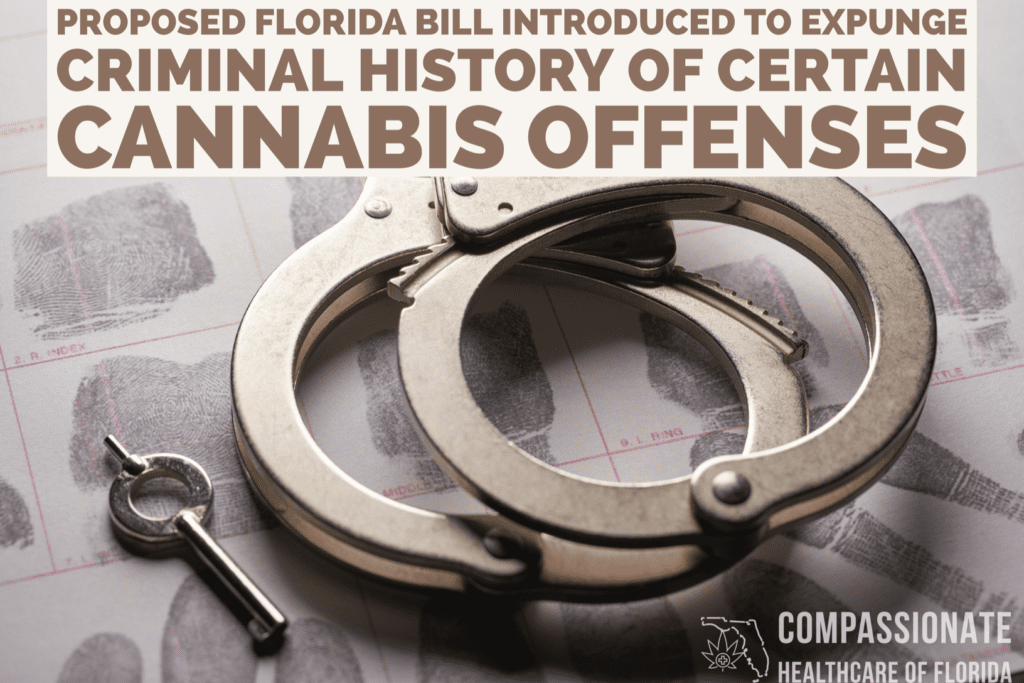
On the Judiciary Committee agenda is a proposed bill by Democratic Senator Randolph Bracy, SB 468, to authorize courts to order for the expunction of records for certain cannabis convictions. If passed, the bill could take effect July 1, 2021, and will be a welcoming change for those in Florida previously convicted of minor, violence-free marijuana charges.
If passed into law and the request for expungement is granted, an applicant’s criminal history for the marijuana charge or charges would be wiped clean. The Florida Department of Law Enforcement (FDLE) estimates that currently, at least 194,900 individuals are eligible and would benefit from having their criminal history expunged. Of this number, 10% would likely apply for expungement annually.
What Would Be A Qualifying Offense For Expunction?
SB 468 outlines specific offenses and criminal history records that would qualify to be expunged. These include one or more misdemeanor convictions of obtaining, purchasing, or possessing 20 grams or less of cannabis. Recently arrests for this volume of marijuana have decreased, largely due to the state medical marijuana program and a change in views on cannabis.
What Would Not Be A Candidate For Expunction?
Misdemeanor convictions obtaining, purchasing, or possessing more than 20 grams of cannabis.
In connection with the cannabis offense, the individual was found guilty or pled guilty or no contest to:
• A felony offense
• To driving under the influence
• To domestic violence
What Happens If The Expunction is Approved?
Per the act, if an individual files an expungement request that is granted by the court, “Any criminal history record of an individual which is ordered expunged pursuant to this section must be physically destroyed or obliterated by any criminal justice agency having custody of such record.”
Besides the destruction of the record, the individual is legally allowed to deny or fail to acknowledge the convictions without fear of perjury. The only exceptions to this would be for certain state employment positions, professional licensing purposes, purchasing a firearm, applying for a concealed weapons permit, seeking expunction, or if the subject is a defendant in criminal prosecution.
Furthermore, the act has verbiage outlining that a court or criminal justice agency may not charge an applicant to file an expungement request, and an unlimited number of requests may be submitted. Although not all requests will be granted, it looks as if those who meet the expungement guidelines will be successful unless the state attorney or arresting agency objects to the court granting the petition. In cases where an objection is filed, a hearing will be held, at which time the DA or arresting agency MUST establish clear and convincing evidence that there is reasonable cause not to grant the request.
When a criminal history record is sealed, it is preserved so that it is secure and inaccessible to any person who does not have a legal right to access the record, or the information contained within the record. A court may order a criminal history record sealed, rendering it confidential and exempt from Florida’s public records laws. Only the following entities may access a sealed criminal history record:
• The subject of the record
• His or her attorney
• Criminal justice agencies for criminal justice purposes
• Judges in the state courts system for assisting in their case-related decision-making responsibilities
• Certain enumerated entities for licensing, access authorization, and employment purposes.
If this important act makes it into law, it will provide an excellent resource for those who faced prior marijuana convictions. Many of these convictions have significantly impacted residents’ future employment, education, and possible career choice—many voters in the state look at these arrests and prosecutions as a meaningless drain on state resources.



